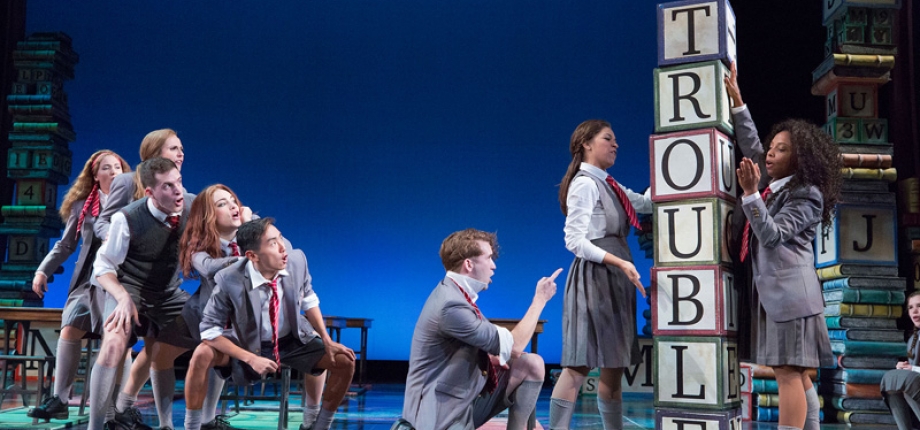Filichia Features: Matilda in America

Filichia Features: Matilda in America
When I saw Roald Dahl's Matilda The Musical at the Cambridge Theatre in London’s West End in early 2012, I was completely overwhelmed by Cleo Demetriou.
How wonderfully she played the eponymous pre-teen heroine in Tim Minchin and Dennis Kelly’s musical version of Roald Dahl’s 1988 children’s novel.
In fact, as Matilda Wormwood, the unlucky girl who had a family that didn’t remotely understand her, Demetriou gave the finest performance I’d seen a child give since Andrea McArdle magnificently did her part to make a hit out of Annie in 1977.
In Matilda The Musical on Broadway, the actresses in the title role and the whole cast spoke in British accents. Matilda The Musical was able to rack up 1,554 Broadway performances. That’s certainly a stellar achievement. Yet I maintain that if Matilda: The Musical had had American child actors speak in their “native” English the show would be running today. It may have done even better at the 2012-2013 Tony Awards, too.
Matilda The Musical, which opened in London in 2011, is still in business. To put that run into perspective, it will soon double the number of performances it had on Broadway. True, its winning seven Olivier Awards (they’re London’s Tonys) has helped keep the show on the boards and on West End theatergoers’ minds. (In fact, no musical has ever amassed more Oliviers than Matilda.) The child actors in London speak English with the accents they’ve had all their lives.
Many of you out there in these United States are planning productions of Matilda. Good – for the show has a message that must be heard. Let’s celebrate learning through this young girl who’s great at math and spends much of her time reading.
You’ll be on safer ground to have your kids speak as they naturally do. By the very nature of their youth, the kids you choose are probably your least experienced performers. As a result, they have enough to do and plenty to learn when they take on major roles. Matilda is certainly one of those, and nine other kids are needed as well.
Many people will come to your production fully expecting that Matilda The Musical will have its child actors speak in ordinary American English, anyway. Remember that the 1996 film version takes place in what is clearly a United States suburb where everyone speaks in everyday English.
So even if you were able to find child actors who could speak The King’s English in utterly regal fashion, these theatergoers already familiar with the film might sit there wondering “Why did the writers change the setting to a London village?”
Your customers might also expect that Miss Trunchbull, the headmistress who frightens every student in the school, will be played by a woman. The musical, since its inception, has had Miss Trunchbull portrayed by a man. You’ll decide who in your company regardless of gender will make the best Miss Trunchbull.
Granted, if you do have your child actors speak in their natural American voices, some theatergoers in your audience may well come up to you after the performance and say, “Gee, I thought the kids were supposed to be English. Why didn’t they sound it?”
But if you do hear that complaint, you’ll probably endure it far fewer times than “I couldn’t understand a word those kids said!” had you forced your child actors to speak in an unfamiliar accent.
You may e-mail Peter at pfilichia@aol.com. Check out his weekly column each Monday at www.broadwayselect.com and Tuesday at www.masterworksbroadway.com. He can be heard most weeks of the year on www.broadwayradio.com.
Follow the fun @mtishows on Instagram, Facebook, and Twitter.

























